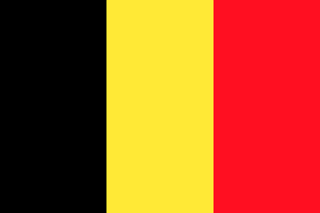The History Of Belgium You Never Knew || The Short History Of Belgium-Deep In Time
Belgium proclaimed its freedom from the Netherlands, and it was perceived in 1831 as a different country, read this article for more information...
The Historical Backdrop Of Belgium
The historical backdrop of Belgium reaches out before the establishment of the cutting-edge condition of that name in 1830 and is entwined with those of its neighbors: the Netherlands, Germany, France, and Luxembourg. For the majority of its set of experiences, what is currently Belgium was either a piece of a bigger domain, like the Carolingian Empire, or partitioned into various more modest states, conspicuous among them being the Duchy of Brabant, the County of Flanders, the Prince-Bishopric of Liège and the County of Luxembourg. Because of its essential area as a nation of contact between various societies, Belgium has been known as the "intersection of Europe"; for the numerous militaries battling on its dirt, it has likewise been known as the "war zone of Europe"[1] or the "cockpit of Europe".[2] It is likewise momentous as a European country that contains, and is separated by, a language limit between Latin-determined French and Germanic Dutch.
The Eighty Years' War (1568-1648)
Belgium's cutting-edge shape can be followed back similarly to the southern center of the archaic Burgundian Netherlands. These terrains rode the old limit of the Scheldt that had separated archaic France and Germany, yet they were united under the House of Valois-Burgundy and brought together into one independent area by their main beneficiary Charles V, Holy Roman Emperor, in his Pragmatic Sanction of 1549. The Eighty Years' War (1568-1648) later prompted the split between the northern Dutch Republic and the Southern Netherlands which Belgium and Luxembourg created. This southern domain kept on being managed by the Habsburg relatives of the Burgundian house, at first as the Spanish Netherlands. Intrusions from France under Louis XIV prompted the deficiency of what is presently Nord-Pas-de-Calais to France.
The French Revolution
The region, long a Habsburg fortification, momentarily went under Bourbon control during the War of the Spanish Succession. The subsequent Peace of Utrecht moved the region back to Habsburg control, making what is presently known as the Austrian Netherlands. The French Revolutionary conflicts prompted Belgium to turn out to be important for France in 1795, bringing the finish of the semi-autonomy of regions that had a place with the Catholic church. After the loss of the French in 1814, the Congress of Vienna made two new expresses, the United Kingdom of the Netherlands and the Grand Duchy of Luxembourg, the two of which were put in dynastic association under the House of Orange-Nassau.
The London Conference of 1830
The Southern Netherlands revolted during the 1830 Belgian Revolution, laying out the cutting-edge Belgian state, formally acknowledged at the London Conference of 1830. The main King of Belgium, Leopold I, expected a high position in 1831. Leopold became known locally for carrying a quick finish to the Belgian performance center in the Revolutions of 1848, and globally as conciliating force in European governmental issues, interceding debates between extraordinary powers and keeping up with Belgian impartiality.
Belgium's subsequent ruler, Leopold II, turned into a dubious figure when he laid out a settlement in south-focal Africa, the Congo Free State, as his very own fief. At the point when the abominations of his standard became public, he was deprived of control of the province by the Belgian government, laying out the Belgian Congo. Locally, Leopold directed a state known for developing liberal feelings, with the development of the work development and the foundation of general male testimonial.
Belgium In The 20th Century
The main portion of the 20th century was significantly more turbulent for Belgium. Its noteworthy nonpartisanship was disregarded two times in every one of the World Wars, as Germany utilized the generally open landscape of Belgium to sidestep French protections. Belgian protection from the German trespassers brought about the Rape of Belgium during World War I. The acquiescence by Leopold III of Belgium to German powers not long after the 1940 intrusion of the nation split apart the King and his kin, and would always harm his inheritance. After the conflict, he stayed in banishment while an official, Prince Charles, Count of Flanders, controlled in his stead. His endeavor to get back to the nation and yet again apply individual control of the nation prompted an established emergency in 1950, which prompted his surrender for his child Baudouin.
Baudouin played a less dynamic job in governmental issues than his ancestors, and Belgium entered the final part of the 20th century showing a phenomenal period of financial development, as Belgium played a functioning job in the arrangement of the Benelux customs association with its neighbors, the Netherlands and Luxembourg. The association permitted the states to oppose American political and financial impact during the time of the Marshall Plan and permitted the district to plot its monetary way. Eventually, the Benelux association would act as a model for the European Economic Community, an antecedent to the European Union; right up 'til now, Brussels fills in as the seat of large numbers of the European Union foundations. Other significant occasions during Baudouin's rule incorporated the autonomy of the Belgian Congo prompting the Congo Crisis, the contentions between the Christian Social Party and its all the more left-hanging rivals over school financing, and the development of the Flemish Movement.
Locally, the nation has confronted divisions over contrasts in language and inconsistent financial turn of events. This continuous threat has caused sweeping changes since the 1970s, changing the previously unitary Belgian state into a bureaucratic state, and rehashing legislative emergencies. It is presently partitioned into three locales: Flanders (Dutch-talking) in the north, Wallonia (French-talking) in the south, and bilingual Brussels in the center.
Belgium's Role In The World
Since the 1990s, Belgium has become engaged with a few worldwide contentions, under the aegis of different United Nations peacekeeping powers, including the Rwandan Civil War, the continuous nationwide conflicts in Somalia, the Kosovo War, and a few others. Ecological worries reached a crucial stage in the Dioxin undertaking, cutting down the Belgian legislature of Jean-Luc Dehaene's prevalence. From that point forward, the Belgian political scene has become progressively politically divided; In the famous 2010 Belgian bureaucratic political decision, required almost a year to shape an administration, and in later races, a developing traditional Flemish patriot development has had serious areas of strength for an over homegrown legislative issues.



.jpg)
.jpg)
.jpg)
.jpg)
.jpg)
.jpg)




0 Comments
If you want me to publish history that you like so tell me freely...